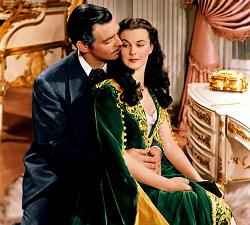Michael Moore, the film-maker, for “Catholic of the Year?”
That is exactly the nomination currently being put forward by Anthony Stevens-Arroyo in Newsweek’s “On Faith.” Before you form your opinion, some points he makes are worth considering.
“‘Capitalism: A Love Story'” provokes such passion on either side that–on that count alone–it becomes a tribute to his skill as filmmaker,” he writes of Moore’s current film. “Admittedly, Moore’s style borders on buffoonery, but his message is nonetheless important. I admire the Catholic currents of social justice in this film.”
“Moore places a favorable light on his lived Catholic experience and the trust he places in Catholic priests,” says Stevens-Arroyo lists three main reasons why Moore–and specifically his latest movie–warrant not only serious consideration but are also indicative of a depth to Moore as a person that his physical appearance and documentary style of filmmaking may mask.”At a time when Catholicism’s foes pounce on reports of pedophilia from the clergy or criticize single issue politics as reasons to denigrate the Church, Moore gives us good news. He lets his own pastor and priest friends come across as down-to-earth.”
In my opinion, that act alone qualifies as courage, as well as being a huge favor to the Catholic Church. Most of my Catholic friends have had a very, very hard time with the church over this past decade, and their general perspective on it has really soured (except, of course, when the festivals come to town!) But Moore stands up (through the film) and makes a case for his church. That was a surprise to me, as I thought the movie was going to be about Washington and Wall Street, not the everyman churches across the country.
Stevens-Arroyo also notes that “Moore puts a human face on the suffering caused by economic hardship” instead of just listing numbers and statistics, through the lens of a “moral compass (that) delivers body blows to Democrats and Republicans alike.”
Moore has done well, financially, but Moore “does not deny the prosperity brought to him and so many other working-class Americans by industrial capitalism.”
“‘Capitalism’… paints the conflict as one between capitalism or democracy,” summarizes Stevens-Arroyo. “People are always more important than any ‘ism,’ and ‘people power’ is Democracy.”
Before this film project, I wasn’t aware of the depth of Moore’s Catholicism, and have seen each film project as a kind of stunt. But Stevens-Arroyo’s post makes some good points. I certainly know we need an answer that’s better than what we’ve got now, and if Moore’s the messenger that’s fine with me.



